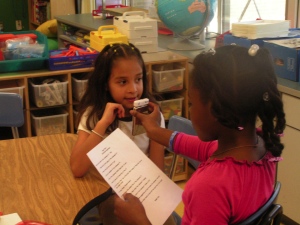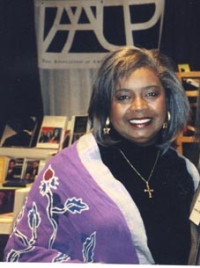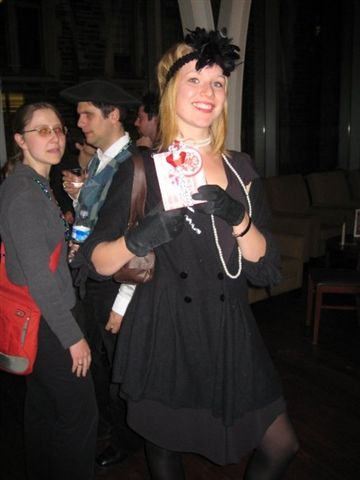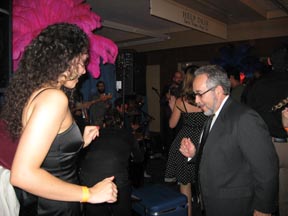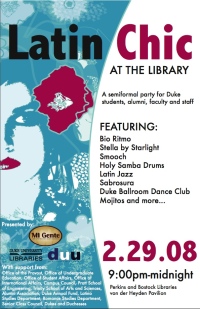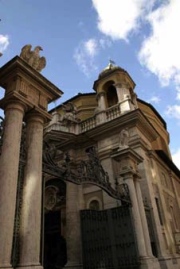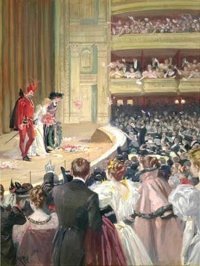 The Art of Political Murder, an exhaustively researched story of assassination, impunity and justice in Guatemala, has won the first annual WOLA-Duke Book Award for Human Rights in Latin America. Francisco Goldman’s book, published by Grove Press, recounts the 1998 killing of Bishop Juan Gerardi, four days after he and a group of lawyers presented a devastating report on human rights abuses committed by the Guatemalan military against civilians. Goldman received the award at a 17 September gala in Washington, D.C. that was attended by some 250 WOLA supporters, including human rights advocates, scholars, Latin American diplomats, and representatives from Duke. Goldman will speak at Duke on 18 November.
The Art of Political Murder, an exhaustively researched story of assassination, impunity and justice in Guatemala, has won the first annual WOLA-Duke Book Award for Human Rights in Latin America. Francisco Goldman’s book, published by Grove Press, recounts the 1998 killing of Bishop Juan Gerardi, four days after he and a group of lawyers presented a devastating report on human rights abuses committed by the Guatemalan military against civilians. Goldman received the award at a 17 September gala in Washington, D.C. that was attended by some 250 WOLA supporters, including human rights advocates, scholars, Latin American diplomats, and representatives from Duke. Goldman will speak at Duke on 18 November.
WOLA (the Washington Office on Latin America) and Duke University created the prize to honor the best current, non-fiction book published in English on human rights, democracy and social justice in contemporary Latin America. In addition to the Libraries, the Duke Human Rights Center is also a co-sponsor of the award.
The book award is the second cooperative venture between WOLA and Duke University. Under an agreement signed in January 2008, WOLA has donated its historical archives, dating to the organization’s founding in 1974, to the Archive for Human Rights at the Duke University Libraries. The materials in the archives document WOLA’s influential role in keeping human rights and justice central in U.S. policy toward Latin America. In presenting the book award at the gala, University Librarian Deborah Jakubs said, “We are honored that WOLA selected Duke to be the repository for the organization’s archives and entrusted us with their history. This book award is another element of our partnership, and we look forward to further collaboration with WOLA.”



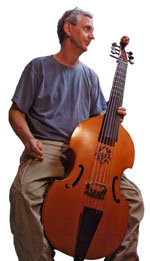 Reproduction—Some Thoughts on Recreating the Music of Bygone Ages, featuring luthier John Pringle
Reproduction—Some Thoughts on Recreating the Music of Bygone Ages, featuring luthier John Pringle Sound the Bright Flutes!—Seasonal Music for Early Woodwinds, featuring Trio Rossignol (Patricia Petersen, Karen Cook, and Douglas Young)
Sound the Bright Flutes!—Seasonal Music for Early Woodwinds, featuring Trio Rossignol (Patricia Petersen, Karen Cook, and Douglas Young)
 The members of the Bloomsbury group explored alternative ways of living and advanced fresh ideas in the arts and social sciences. Their shared spirit of collaboration, community, and inquiry spurred the creation of works as diverse as Virginia Woolf’s Mrs. Dalloway, J.M. Keynes’s General Theory of Employment, Interest, and Money, and Roger Fry’s study of Cezanne. This exhibit features books and manuscripts from the Rare Book, Manuscript, and Special Collections Library documenting the activities of the group’s members, including Woolf, Keynes, Fry, Vanessa Bell, Lytton Strachey, and Duncan Grant, and of the Hogarth Press, created and operated by Woolf with her husband Leonard.
The members of the Bloomsbury group explored alternative ways of living and advanced fresh ideas in the arts and social sciences. Their shared spirit of collaboration, community, and inquiry spurred the creation of works as diverse as Virginia Woolf’s Mrs. Dalloway, J.M. Keynes’s General Theory of Employment, Interest, and Money, and Roger Fry’s study of Cezanne. This exhibit features books and manuscripts from the Rare Book, Manuscript, and Special Collections Library documenting the activities of the group’s members, including Woolf, Keynes, Fry, Vanessa Bell, Lytton Strachey, and Duncan Grant, and of the Hogarth Press, created and operated by Woolf with her husband Leonard.  An exhibit inspired by the popularity of the AMC television series Mad Men, which centers on the lives of executives at a fictional advertising agency in the early 1960s. The series has generated much discussion among viewers, as well as among present-day advertising industry professionals and media outlets. Drawing from materials in the collections of the Special Collections Library’s Hartman Center for Sales, Advertising & Marketing History, the exhibit highlights the real-life careers of 1960s advertising professionals who held positions in four of the types of agency occupations depicted on the television series: copywriters; creative directors; art directors; and account executives.
An exhibit inspired by the popularity of the AMC television series Mad Men, which centers on the lives of executives at a fictional advertising agency in the early 1960s. The series has generated much discussion among viewers, as well as among present-day advertising industry professionals and media outlets. Drawing from materials in the collections of the Special Collections Library’s Hartman Center for Sales, Advertising & Marketing History, the exhibit highlights the real-life careers of 1960s advertising professionals who held positions in four of the types of agency occupations depicted on the television series: copywriters; creative directors; art directors; and account executives.
